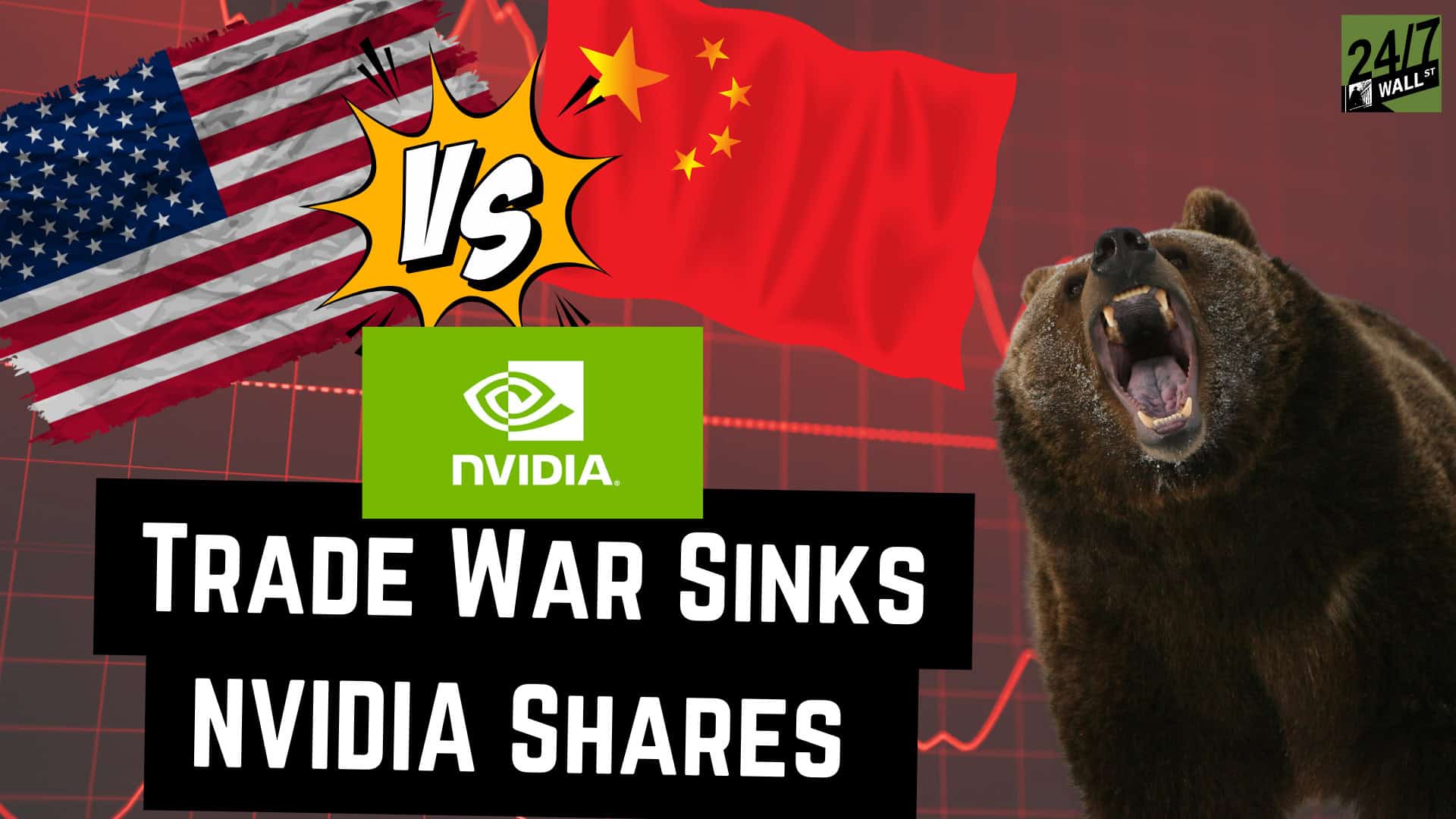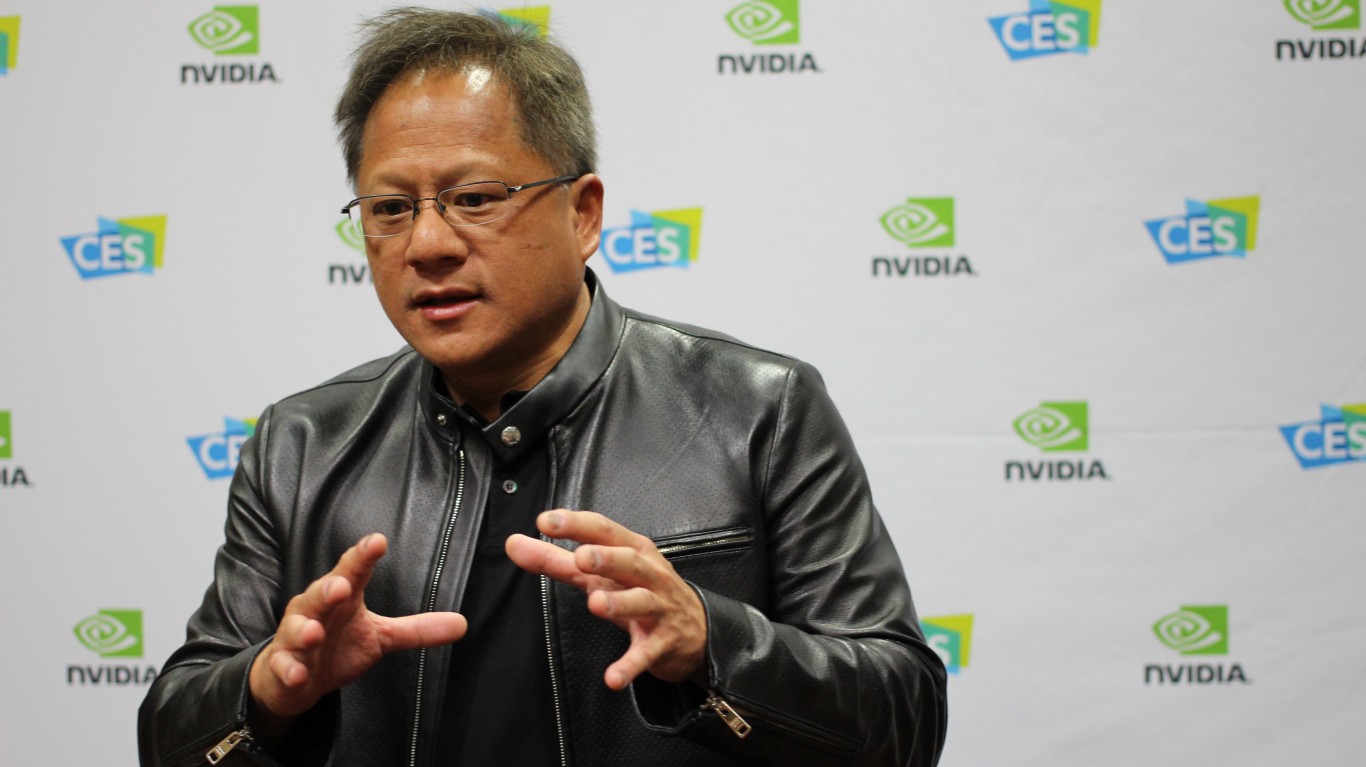Investing
NVIDIA Shares Fall: Could a China Trade War Sink the Stock?

Published:
Last Updated:

NVIDIA (Nasdaq: NVDA) shares are down about 4% before the market opens on Wednesday. The prime culprit is reports that trade restrictions could further limit its chip sales into the country. NVIDIA isn’t the only chip company suffering from these reports. Let’s dive into what the reports are and the potential downside to NVIDIA.
Need to Know News
Bloomberg released a report at 11:42 last night that the Biden administration was considering further curbs on semiconductor sales to China. The US previously imposed restrictions on exports to China which has hampered various leading chip companies. For example, ASML (Nasdaq: ASML) has been unable to sell its most advanced EUV systems to the country. Likewise, NVIDIA is unable to sell its H100 and upcoming B200 chips, and instead has to sell a less powerful chip named the H20 in the country.
The new measure from Biden would utilize the Foreign Direct Product Rule (FDPR). The rule could allow America to block advanced products with very little American technology in them. For example, while ASML is a Dutch company, critical aspects of its technology come from businesses it purchased in the past that are located in America.
It’s important to note that these measures are part of negotiations with partners like Japan and the Netherlands. So while the deliberations are happening, nothing has been decided.

Before the U.S. first raised restrictions on advanced semiconductor exports, NVIDIA was seeing 20% to 25% of sales from its all-important Data Center group to China. However, in the most recent quarter, NVIDIA reported its China sales had slumped to “mid-single digits.” This implies about 5% of sales to China today.
The “good news” for investors is that NVIDIA has seen such incredible growth in spite of losing a revenue source that was previously up to a quarter of its sales. From that perspective, its downside might also be limited. If about 5% of its Data Center sales come from China and it’s dropping 4% today, you could effectively be seeing investors “zero out” demand from China.
ASML has already felt the pinch of export restrictions. The company has been unable to sell its most advanced EUV systems to China but has been seeing robust demand for older (DUV) systems to the country. In the prior two quarters, China contributed about 49% of sales to the company. However, it should be noted its backlog of sales to China at about 20% as of the first quarter.
It’s widely believed that Chinese companies have been “stockpiling” equipment knowing there was a possibility of stronger sanctions. Other semiconductor equipment companies like Tokyo Electron, Lam Research, and Applied Materials would also see declining sales if semiconductor export controls toughened.
ASML reported very positive earnings last night and would likely be up in the absence of geopolitical news. Instead, it’s down 8% in premarket trading.
The bottom line is that NVIDIA’s downside is likely more limited compared to semiconductor equipment makers. It has already lost almost all of its Chinese revenue, so it doesn’t have “as much to lose.” In the case of ASML, Lam, and Applied Materials, tougher export controls are a bigger threat.
We’ll explore this more in the days to come on 24/7 Wall St., but another consideration in this space is how Trump will approach semiconductor controls with China. The Biden administration has been very hawkish when it comes to sanctions. While Trump has recently made news with quotes about Taiwan needing to pay the U.S. for its defense, Trump is a negotiator in nearly all matters. It could be he sees using American chips as the greatest bargaining chip he has when negotiating with China.
If that means he lessened export controls with China in exchange for tariffs in other areas or alternate concessions, his election could also become a catalyst for many companies seeing their prices fall thanks to geopolitics today.
Thank you for reading! Have some feedback for us?
Contact the 24/7 Wall St. editorial team.